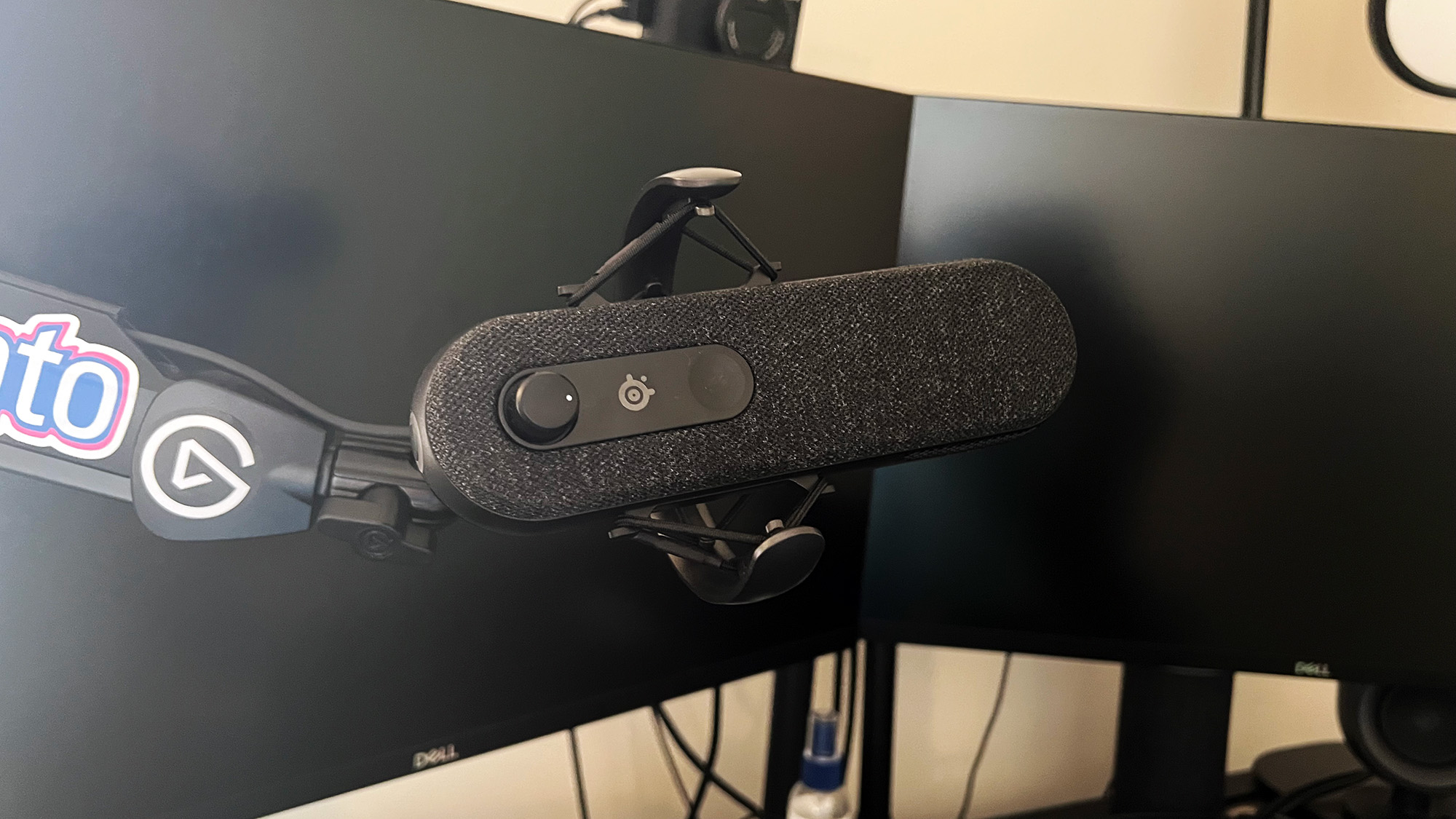
Streamers and gamers are spoiled for choice when it comes to USB microphones these days, with options popping up at every step of the price scale. The result is a battleground where you need to find a way to stand out, particularly as a newcomer.
SteelSeries may not be a newcomer to the world of gaming gear in general, but the Alias and the sibling SteelSeries Alias Pro are the brand's first attempt at making the best microphone for streamers and gamers.
A £179/$179 USB-C condenser microphone it’s an eye-catching, premium option in the field, with plenty to back it up on the software side. So has SteelSeries done enough to stand out?
Design
Microphones tend to prefer being heard and not seen, and this is often reflected in their physical design. That's not the case here though - work has clearly gone into making the Alias, and the SteelSeries Alias Pro a pair of absolute lookers. As far as microphones go, these are pretty pleasant ones.
The SteelSeries Alias carries across the same pill style as the brand’s Arena speakers and it makes for a fresh take on the standard microphone barrel. I like it; it’s a unique look without being overdesigned for the sake of being different. The body is plastic but still carries a premium feel and the fully upholstered front panel feels rather grown up and studio-like.
Sticking out of the face is a touch-sensitive mute button and a headphone gain dial, while the microphone gain dial is banished to the back. Personally, I’d have preferred to see the mute button on the bottom as the integrated shock-mount arms do get in the way a tad, but that’s hardly a dealbreaker.
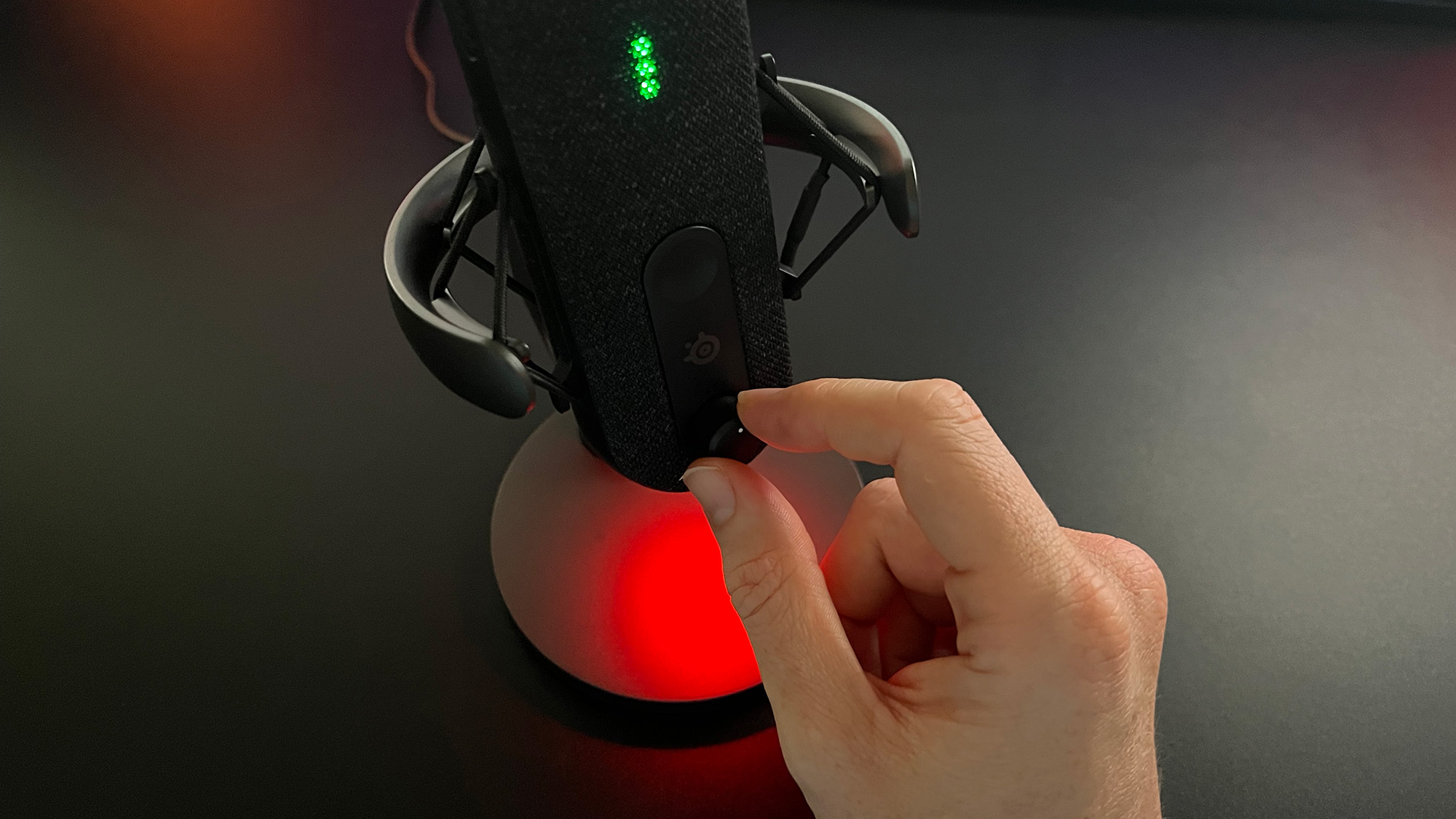
The included stand is also nicely considered, there’s more sweeping curves here that make it unmistakably a match for the Alias. A reasonably large footprint combined with a weighty and fully rubberized base meant I had no issues with it staying put on my desk and no matter which angle I moved the SteelSeries Alias microphone to, it didn't overbalance. You are limited to a vertical orientation with the stand however which is a shame, I’d have liked the option to rotate and have the Alias sit horizontally so it didn’t start covering the bottom of my monitor.
SteelSeries includes a boom arm adapter in the box with both the standard 3/8" and 5/8" threads so the Alias should be compatible with any brand of microphone arm. I bolted it to the Elgato Wave Arm and had no problems at all. Even with the metal shock mount still attached the SteelSeries Alias is only just over 200g so even cheaper mic arms should handle the strain.
Features
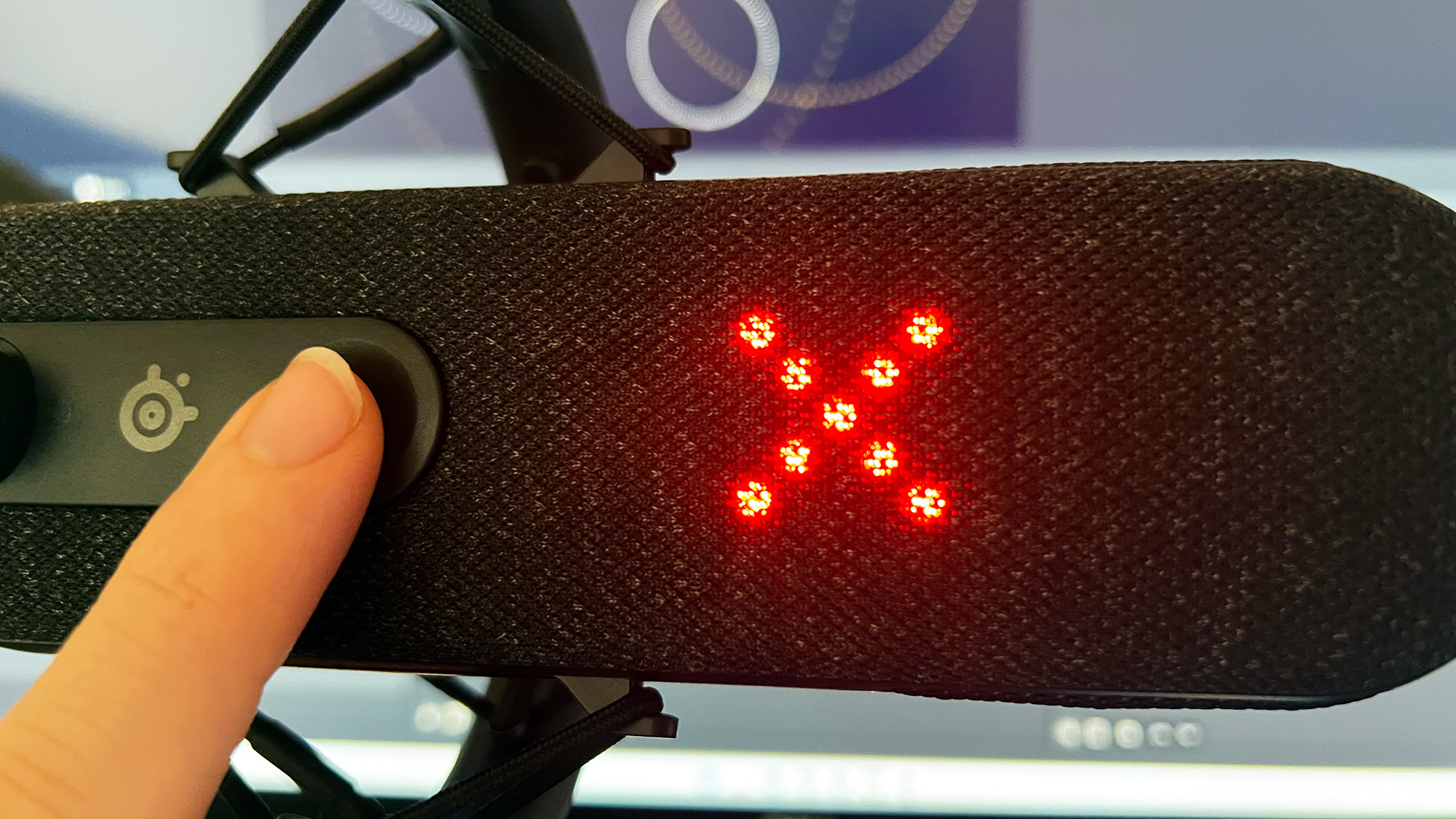
Of course, it wouldn’t be a streamer-focused microphone without a little RGB, and on the SteelSeries Alias, you’ll find this in a small ring on the bottom. When hanging off a mic arm it feels a tad redundant, you can’t really see it and it performs no real purpose. If you’re using the Alias with the included stand, however, its placement becomes clear as the base of the stand picks up that glow. I’ll admit that it’s a neat touch and integration with the GG app means it’ll play nice with any other SteelSeries accessories you already have.
There’s another unique and slightly more practical LED presence on the Alias and it’s hiding behind the fabric. A row of five LEDs provides visual feedback of your input levels in real time with three green, one yellow, and one red light keeping you constantly in the loop. Tap the mute button and you’re greeted with a big, scary X across the face of the microphone itself, it’s wonderfully obnoxious, unmissable, and clever - no more accidental two-hour silent streams or Zoom meeting faux pas.
Performance
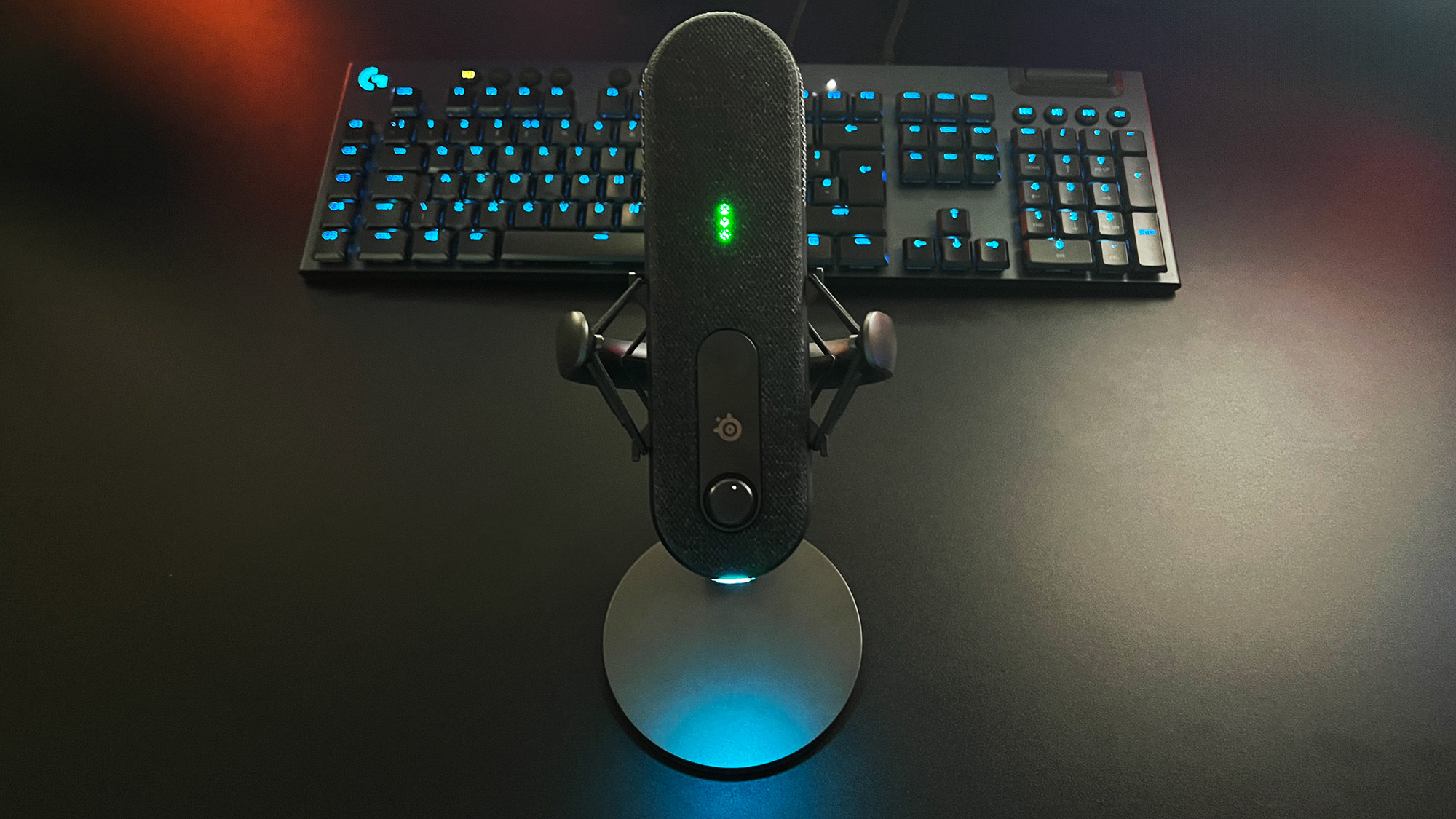
Looking good is one thing but for a USB microphone with a pretty hefty price tag, the SteelSeries Alias needs to hit the mark when it comes to audio performance.
Thankfully, across the board, I found this largely to be the case.
SteelSeries has gone with a condenser capsule for the Alias and it’s a decision that pairs well with their gaming focus. Unlike a dynamic capsule that requires direct attention, the Alias’ large condenser capsule sucks in audio from a wider field and is more forgiving to poor mic etiquette. I found the cardioid pickup pattern did a good job at maintaining consistent quality from a decently large bubble in front of the Alias and I was able to move around more desk space without any real drops in quality. There is definite value to staying a little closer though with a real sweet spot of richness 8-10 inches away.
The trade-off of condenser microphones capturing from a greater area is usually an unwelcome sense of roominess to the sound but in testing, I found SteelSeries had done a good job in overcoming this. Even in my office with no specific acoustic treatment, the Alias captured my voice with a nice sense of presence and without a distant airiness others suffer from. It’s a natural sound profile, like being sat in the room together rather than listening to a studio broadcast - something to keep in mind if you’re a creator looking for that more stylized ‘podcast voice’.
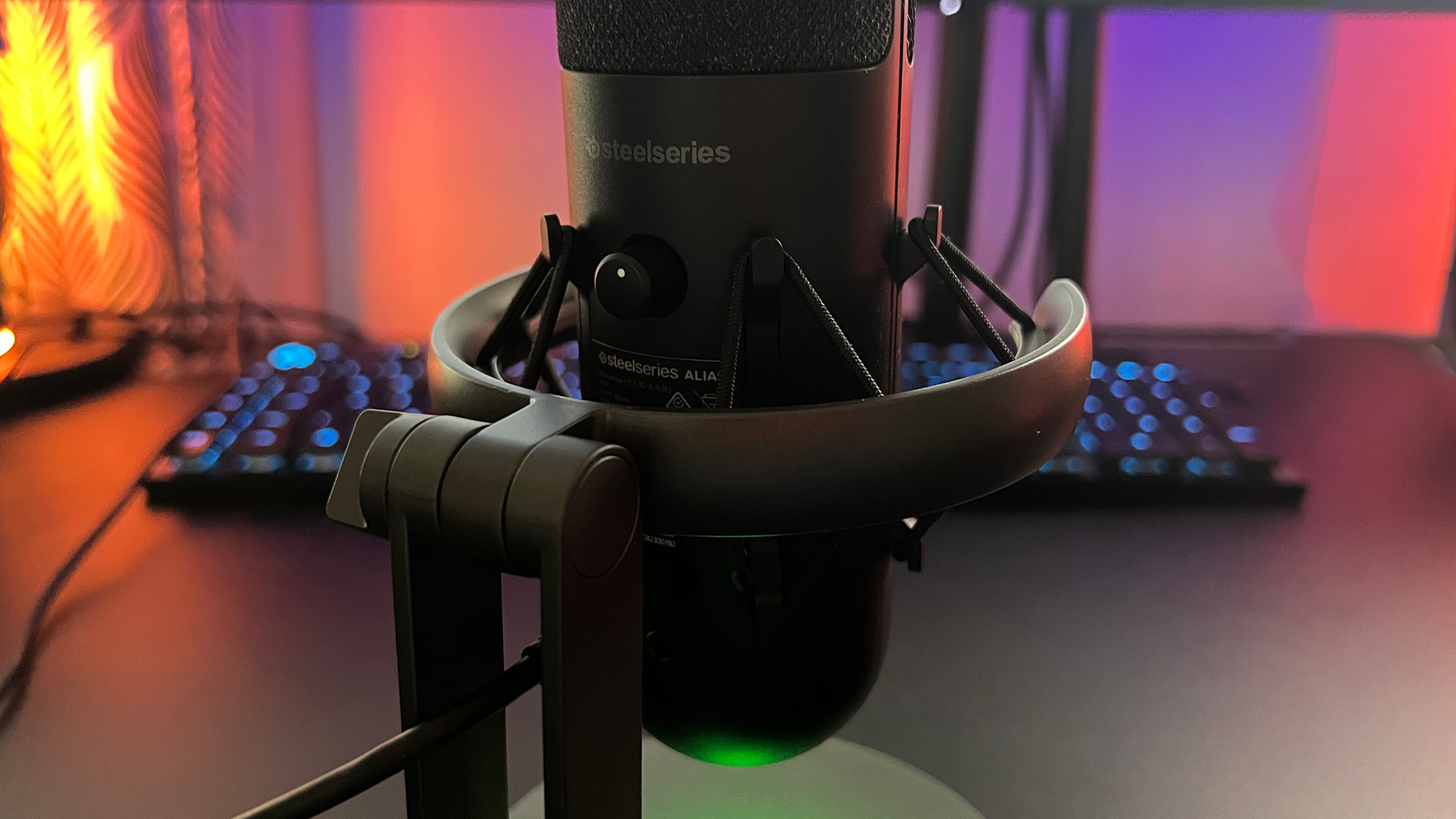
The large one-inch capsule is the same as you’ll find in the more expensive XLR Alias Pro and it’s refreshing to see SteelSeries not punish creators with a preference for USB. Even straight out of the box with no software tweaking, the large capsule delivered clean, detailed sound that was on par with what you’ll find from more seasoned audio veterans like RODE. The included shock mount did a good job too, both on the stand and my mic arm it successfully shielded the Alias from all but the heaviest of attacks on my desk.
While a majority of creators could probably run the SteelSeries Alias fully plug and play there are benefits to be had from firing up the Sonar section of SteelSeries’ GG software. Here the streamer mode will unlock a range of EQ options with a handful of basic presets or the ability to really hone in your unique sound. I found the click-and-drag approach simple to use, much like the BEACN Mic software and it didn’t take long to find improvements I was happy with.
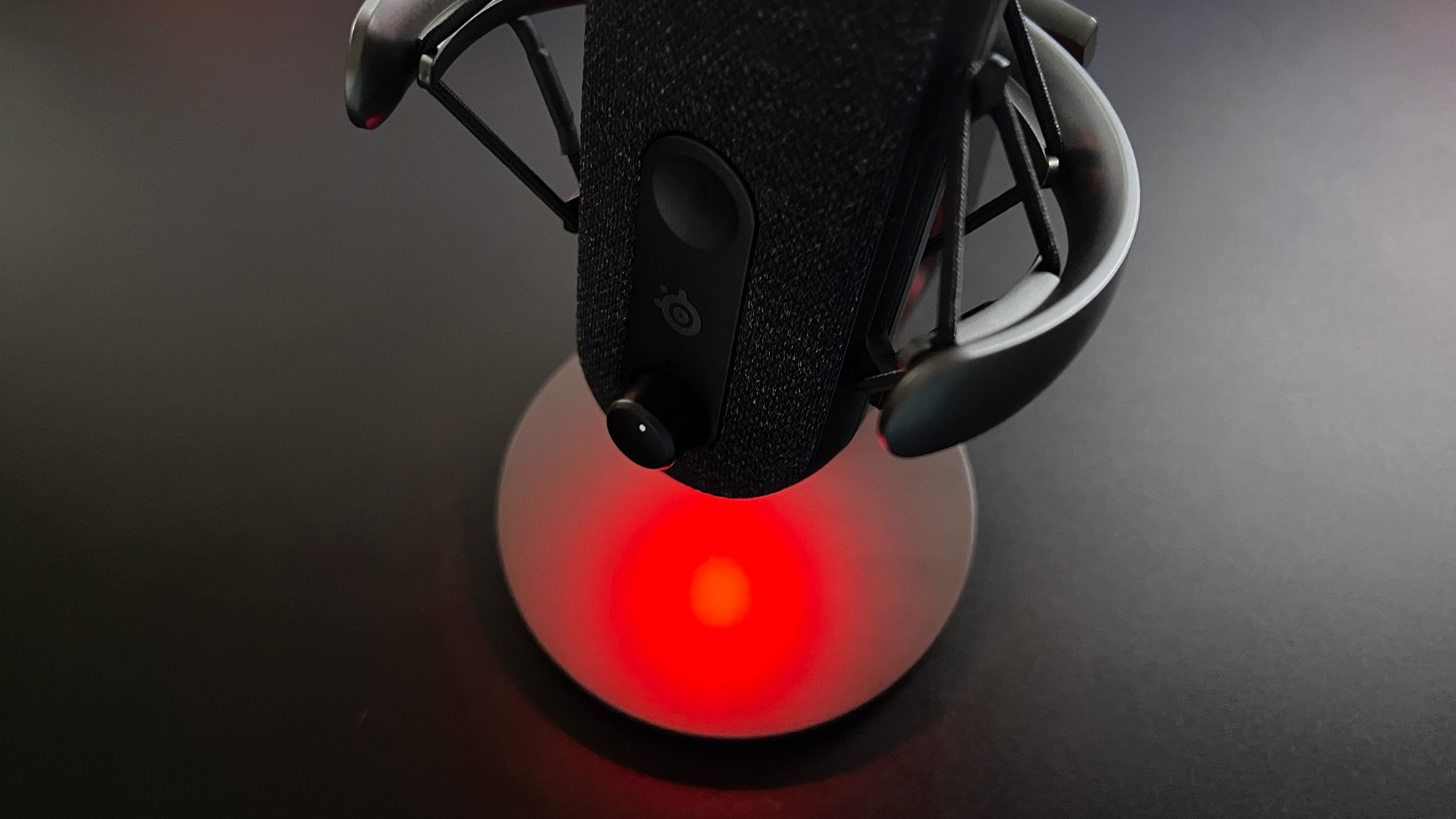
SteelSeries also includes ClearCast AI noise cancellation in GG Sonar which, like NVIDIA Broadcast, is really pretty magical at getting rid of everything but your voice. I was particularly impressed at how well it performed, even at lower intensity settings, and didn’t find it had a noticeable impact on vocal quality as a result. If you’re streaming from a less-than-optimal space or have an overbearingly loud mechanical keyboard it’s a real winner - and unlike NVIDIA’s solution it’s CPU-driven so shouldn’t impact gameplay too much either.
Additionally, SteelSeries GG offers control of your other PC audio devices with individual app routing and sub-mixes across a couple of different channels. It’s very similar to offerings from RODE or BEACN and just like those it’s fine but also full of frustrations. Most of these I’ll concede come from the fact it’s essentially re-skinning Windows’ audio management so the same quirks and limitations carry over. I found it a little overbearing - there’s a very specific configuration the software wants you to use and if you’d like a setup that’s different to that be prepared for a wrestling match.
Thankfully, it’s separate from the Alias microphone itself so you can ignore it if you don’t want to get granular. Here's hoping software updates improve that kind of foible over time.
Should you buy the SteelSeries Alias?
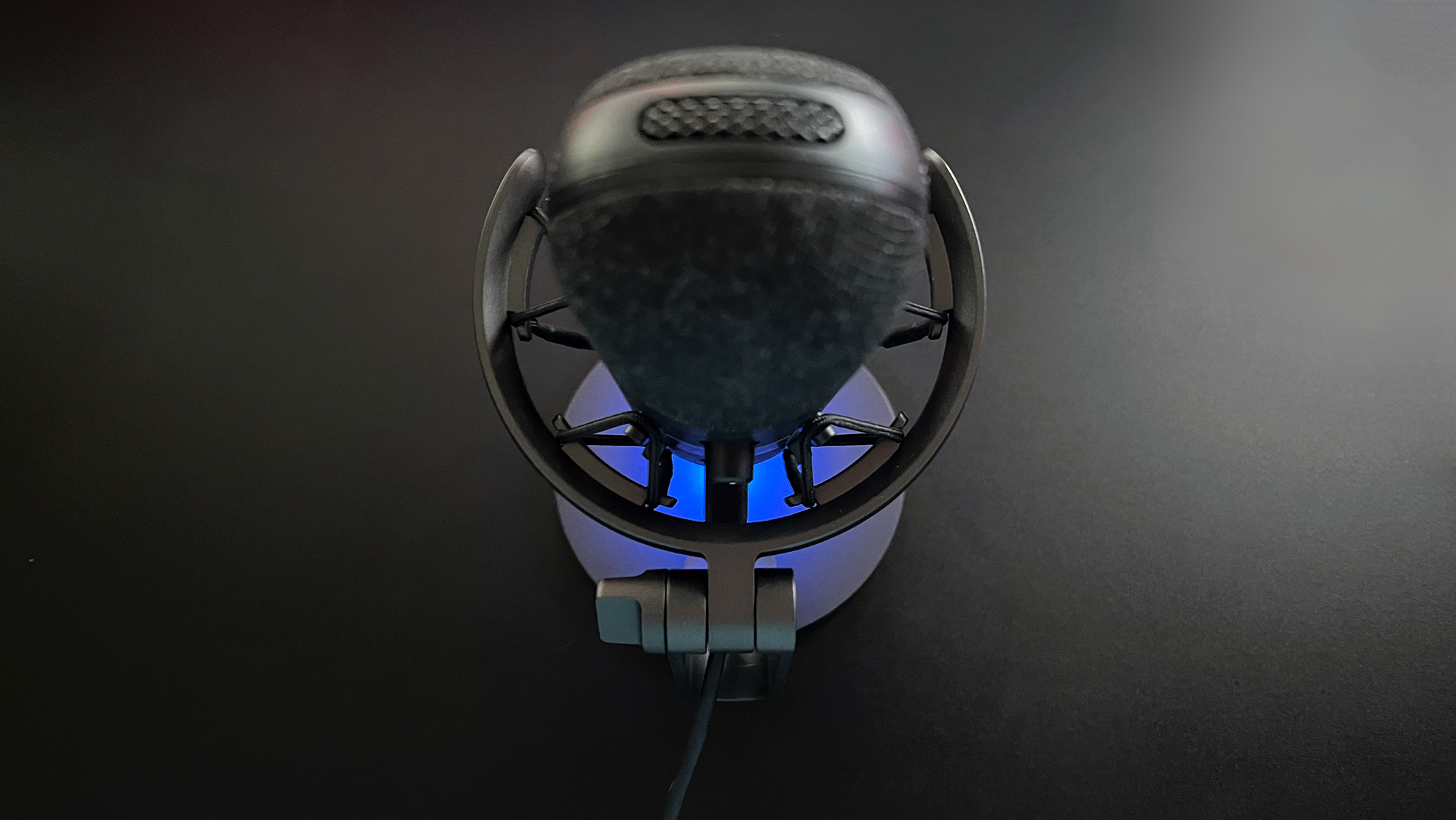
As a first attempt at a microphone, the SteelSeries Alias is a wonderful start. It’s clear that rather than rolling out a generic offering for the sake of having one in the range, SteelSeries has put a good level of thought and care into designing their gamer-focused microphone.
The large condenser capsule picks up great detail with impressive clarity and avoids some of the major pitfalls others stumble upon. When combined with the SteelSeries Sonar app the Alias becomes a quality option for streamers, even despite the more professional-grade Alias Pro. Ultimately, this is one that lives up to its £179/$179 price point.
How we tested the SteelSeries Alias
I used the SteelSeries Alias USB microphone as part of my gaming and streaming setup for a couple of weeks before writing this review. It was used as my primary audio device for Twitch streaming, Discord calls, and dedicated audio testing. Throughout I used it both on the included stand and attached to an Elgato Wave Arm using the supplied USB cable and SteelSeries Sonar software.
For more on how we test the latest gaming tech, peruse our hardware policy.
For more streaming gear, check out the best webcams, the best ring lights for streaming, and the best capture cards.







